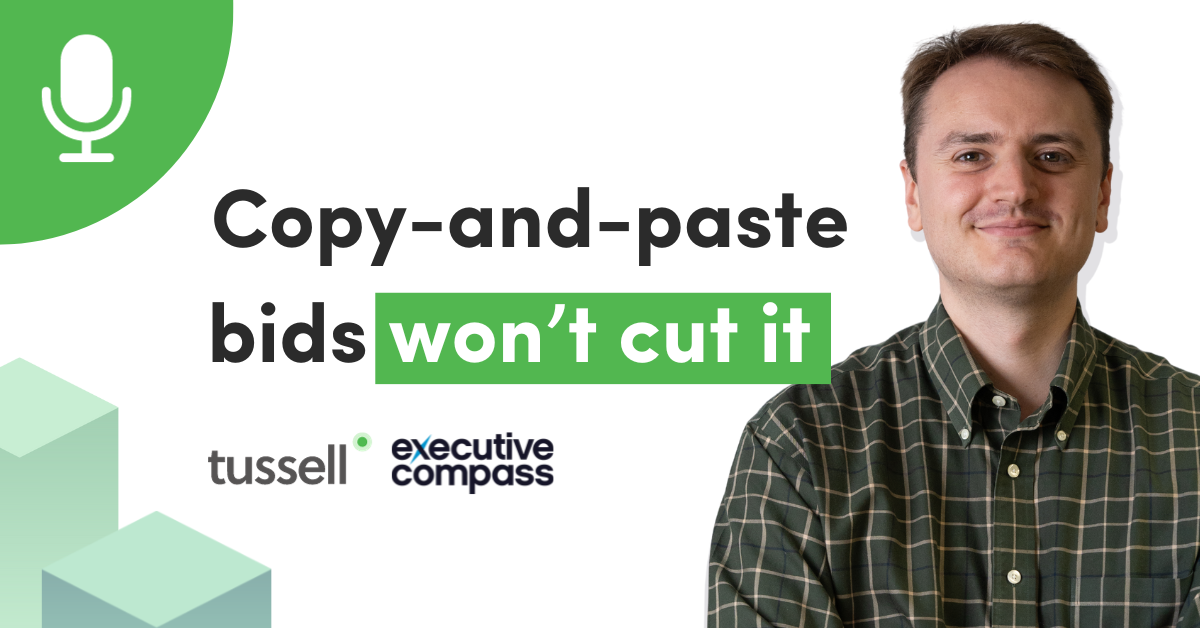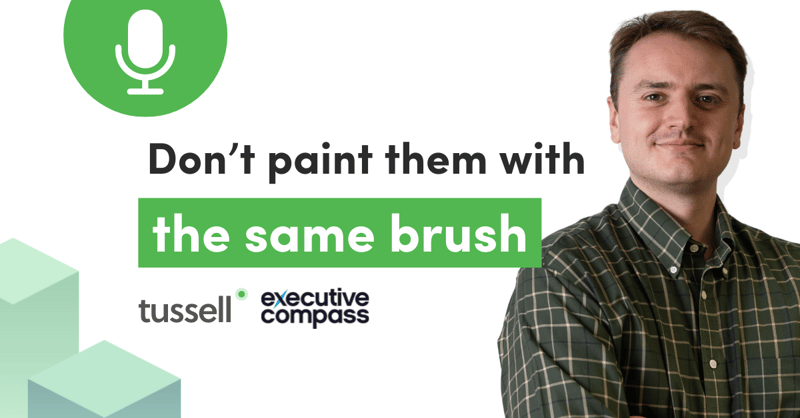The public sector marketplace is more competitive than ever - writing copy-and-paste bid submissions simply isn’t going to cut it anymore. Your bids need some punch to make buyers listen.
In the latest episode of the Public Sector Sales Podcast, we sat down Matthew Walker - Technical Director at bid-writing experts Executive Compass - to learn how you can infuse your bids with authority and boost your bid win-rate.
Click here to listen to the full episode.
Here are the key takeaways from our chat:
📝 Suppliers often treat bidding like a "box-ticking exercise"
Suppliers tend to get the 'basics' of bid writing correct, says Matthew.
This includes providing key bits of information about yourself, filling out technical details, and describing the services you provide.
Only doing this, and nothing else, "is only sufficient to get you in the race" however.
To write bids that will stand out against the rest, and have a higher chance of landing you work, you need to move beyond just the more mundane "box-ticking" aspect of bid writing.
Remember, dozens of bid submissions will likely land on a buyer's desk for an average tender: what will make yours stand out?
Matthew argues that truly compelling and authoritative bids read more like a "story" or "narrative", tailored around the buyer and tender's specifics needs, circumstances and context. These bids 'read between the lines', and get to the heart of solving the buyer's issues or needs.
What does this mean in practice?
📖 Taking your bid to the next level, you need to tailor your bids
Broadly speaking, more authoritative bids do several things that "box-ticking" submissions don't:
-
They show you understand the buyer's specific needs
-
They show you understand the local or national context, with evidence
-
They differentiate you from your competition, with evidence
-
They offer a solution that's tailored to the buyer
Producing these more evidence-based and informed bid submissions "puts the bidder on the front foot", argues Matthew: "the buyer becomes invested in the bidding organisations because they get the sense they're competent, they know what they're doing, and they're reliable."
❓ How you can do this?
Matthew offers a number of methods to employ when you start the bid writing process, to help you start writing more authoritatively:
Show you understand the local context
Make clear from the beginning that you understand the circumstances surrounding the tender. If you're submitting a bid to provide smoking cessation services for a local NHS body, for example, do your research on what similar services are already provided nearby, and explain how your offering aligns or differs with them.
Reflect on what the buyer really wants to know
For every question posed in the tender document, reflect on why this question is being asked. Why does knowing the answer to this question matter to the buyer? This approach will help you develop answers that get to the heart of what the buyer really wants to know, and produce more compelling responses.
Back up your arguments with evidence.
"A strong bid needs qualitative and quantitative evidence to make it impactful", argues Matthew.
Using hard data and evidence not only shows your claims are substantiated and trustworthy, but that you've also put in the extra leg work.
Qualitative evidence in bid writing includes sources like case studies, testimonials, feedback, etc.
Quantitatively, there's a wealth of freely available information out there on fields like demographics, funding, KPIs etc. that you can use to back up your arguments, and show you truly understand the tender's and buyer's environment.
Specifically, data on how much a given buyer is spending on incumbent suppliers, or what work's been awarded in the past, can be key when helping you decide how to price-to-win, or how to differentiate your offering vs. the incumbent contract.
You can technically find this data on open procurement portals, but it is a huge time drain. Tussell can enable you to find these insights in just a couple clicks.
Invest in your writing skills!
Not only do you need the substance and evidence to write more authoritative bids, but you also need the ability to articulate your narrative in a clear and compelling way.
Bids aren't typically the most exciting documents to read. Help out the reader by making your points clearly and easy to follow - otherwise you risk your authority and evidence getting lost behind poor writing.
*
🔊 To listen to the full episode of the Public Sector Sales Podcast with Matthew @ Executive Compass, click here.
🎙️ We have lots more episodes of the Podcast available to listen to here.
Each episode we team up with an industry expert to help you better understand the public sector marketplace, and start winning more business with government.
To learn more about Executive Compass and how they can help your firm write bids with authority, click here.
To see how Tussell can provide you with the data you need to start writing more compelling, insight-led bids, book in a chat with our team.




%20v1.png)


.png?width=80&height=80&name=james%20v2%20(1).png)






